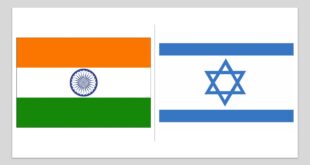Why in NEWS
The External Minister was responding to a question on how the two countries would cooperate in case of a conflict in Taiwan Strait, or between India and China at the LAC; visiting Japanese Foreign Minister Yoshimasa Hayashi stresses strong bilateral ties.
Way Foreword
External Affairs Minister said India and Japan would rather work to strengthen their “peacetime cooperation”, side-stepping a question about how the two countries would cooperate in case of a conflict in the Taiwan Strait, or between India and China at the Line of Actual Control (LAC).
“It is actually the peacetime cooperation, which is when you are tested,” External Minister said in response to a question from Japanese newspaper Nikkei about what kind of “wartime cooperation” could be expected from India in case of a war in the Taiwan Strait, in a reference to any possible Chinese military action against Taiwan.
India Japan Relationship
India and Japan have a long and close relationship, dating back to the arrival of Buddhism in Japan in the 6th century. The two countries have shared cultural and religious ties ever since, and their relationship has grown stronger in recent decades.
In the political sphere, India and Japan are both democracies with strong commitments to free trade and open markets. They are also both members of the G20, the Quad, and the ASEAN Regional Forum. These shared interests have led to close cooperation on a range of issues, including security, climate change, and economic development.
Economically, India and Japan are increasingly important partners for each other. Japan is India’s largest source of foreign direct investment, and India is Japan’s largest market in South Asia. The two countries have also signed a number of free trade agreements, which have helped to boost trade and investment.
In the security sphere, India and Japan are working together to address common challenges, such as terrorism and maritime security. They have also conducted joint military exercises and training, and they are working to develop closer intelligence cooperation.
Overall, the India-Japan relationship is strong and growing. The two countries share a common vision for the future, and they are committed to working together to address the challenges of the 21st century.
Here are some specific examples of the close relationship between India and Japan:
- In 2006, the two countries signed a “Special Strategic and Global Partnership” agreement, which formalized their close cooperation on a range of issues.
- In 2016, India and Japan launched the “Japan-India Act East Forum”, which is a platform for cooperation on economic and security issues in the Indo-Pacific region.
- In 2022, India and Japan signed a Comprehensive Economic Partnership Agreement (CEPA), which is expected to boost trade and investment between the two countries.
The India-Japan relationship is a key part of the emerging Indo-Pacific security architecture. The two countries are working together to promote peace and stability in the region, and they are committed to working together to address common challenges, such as terrorism and maritime security.
 Chinmaya IAS Academy – Current Affairs Chinmaya IAS Academy – Current Affairs
Chinmaya IAS Academy – Current Affairs Chinmaya IAS Academy – Current Affairs

